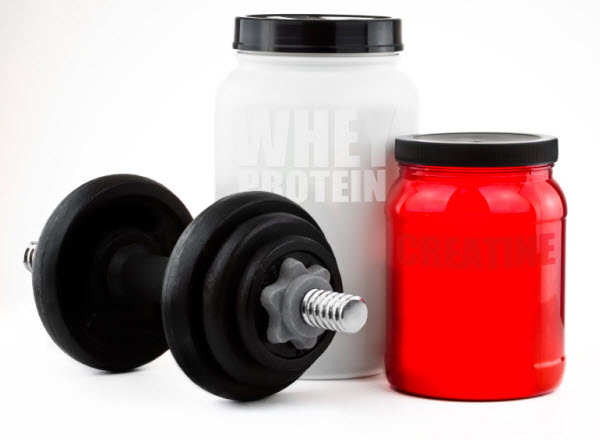During adolescent sports physicals, I am commonly asked for my thoughts on a variety of supplements that athletes are hearing a lot about. Two such substances, protein powder and creatine, seem to come up more often than others, so I’d like to share some information about each of them.
Protein powder
If you’ve ever walked into a health food store, you’ve probably seen shelves filled with various types and brands of protein powder in all different flavors and colors….and all types of price tags, too. The body uses protein for building muscle, supporting your blood and heart functions, and much, much more. Athletes typically desire more protein in their diets in order to build stronger muscles and increase their endurance. According to a WebMD article, teenage athletes typically need 0.8-0.9 grams of protein per pound per day. If you do the math and examine the labels on the foods you eat, you’ll probably find that you’re getting enough protein from your daily diet. Amounts that exceed these upper limits are likely not going to be used by your body to build muscle. Protein can also put a strain on your liver and kidneys when taken in excess, which is another reason not to overdo it.
If you and your doctor decide that protein powder is right for you, choosing which protein powder to use is your next hurdle. I typically recommend either whey or casein types of protein, as these are the types that are best handled by your body. But remember: more expensive isn’t always better!
Creatine
This supplement is thought to increase muscle mass and, therefore, improve sports performance. What I find to be the biggest barrier to safe creatine use is the fact that its use and sale is not regulated by the Food and Drug Administration (FDA). This means that safe dosage ranges and side effect profiles have not been established. It also means that brands can make claims about their creatine content that may not be substantiated and add things to their products that may not be safe.
Creatine overuse has been associated with a multitude of problems including stomach upset, psychological disturbances, and kidney problems. With the lack of proven benefit and the associated potential health risks, I generally advise against the use of creatine for athletes.
References:



